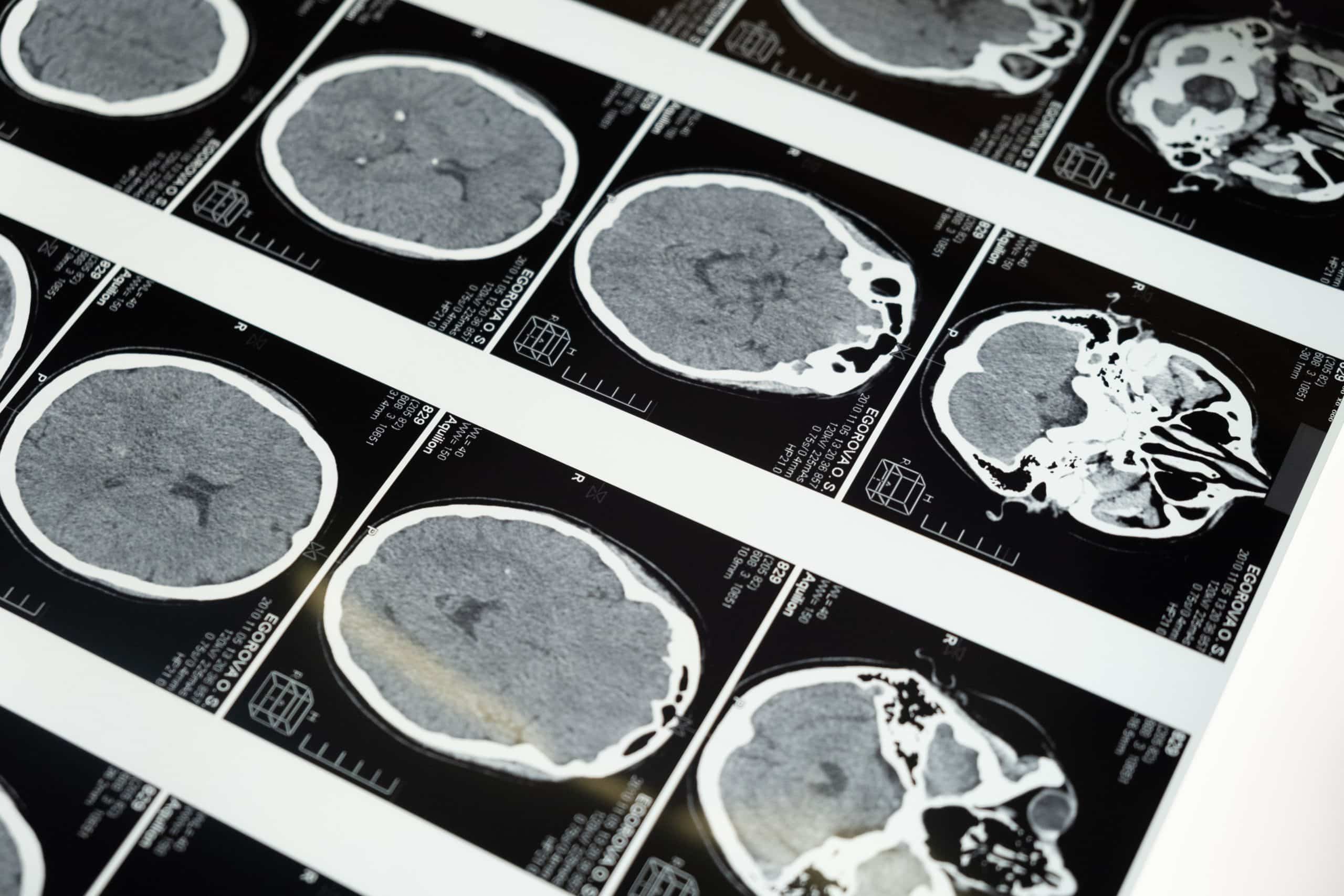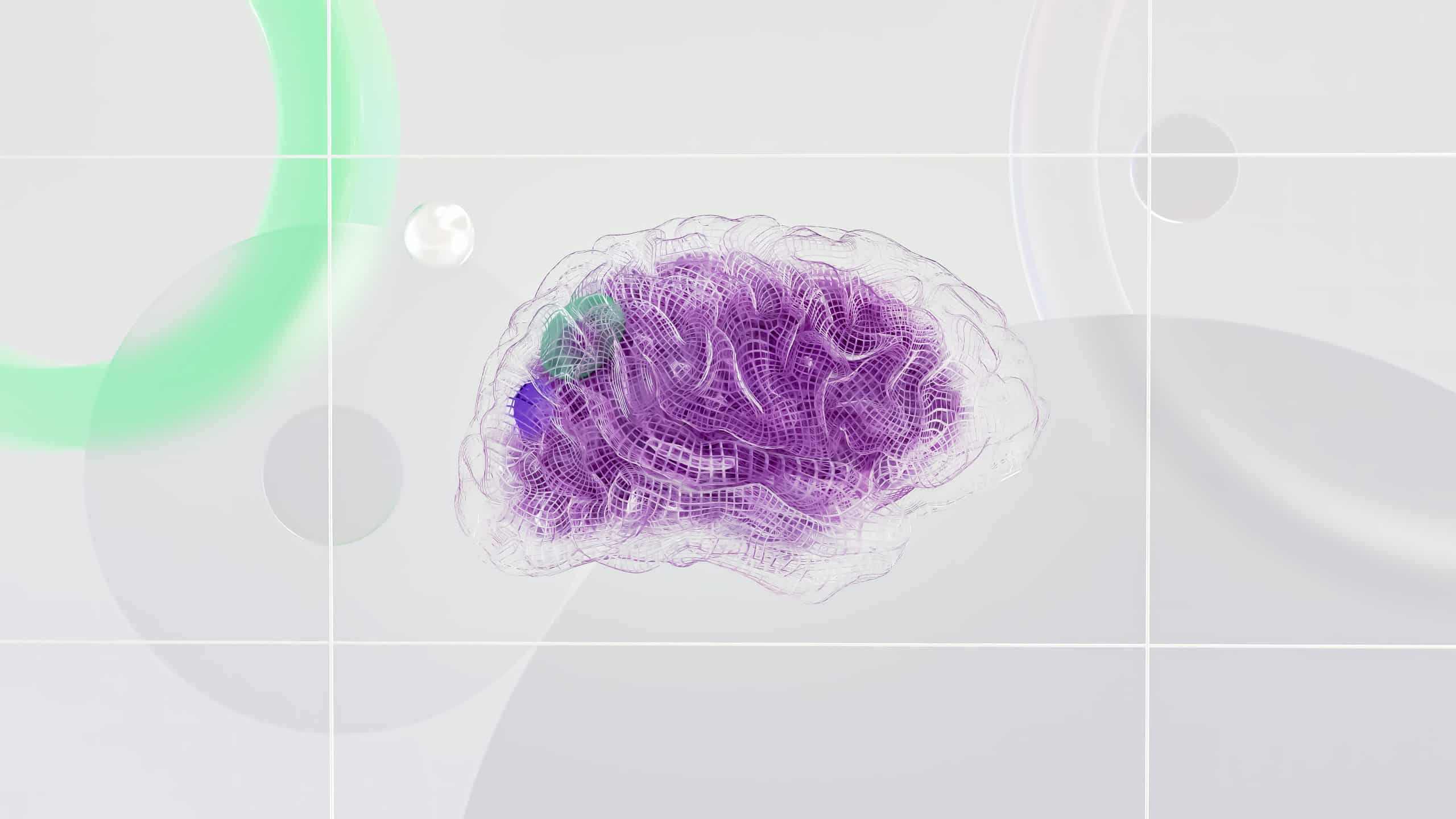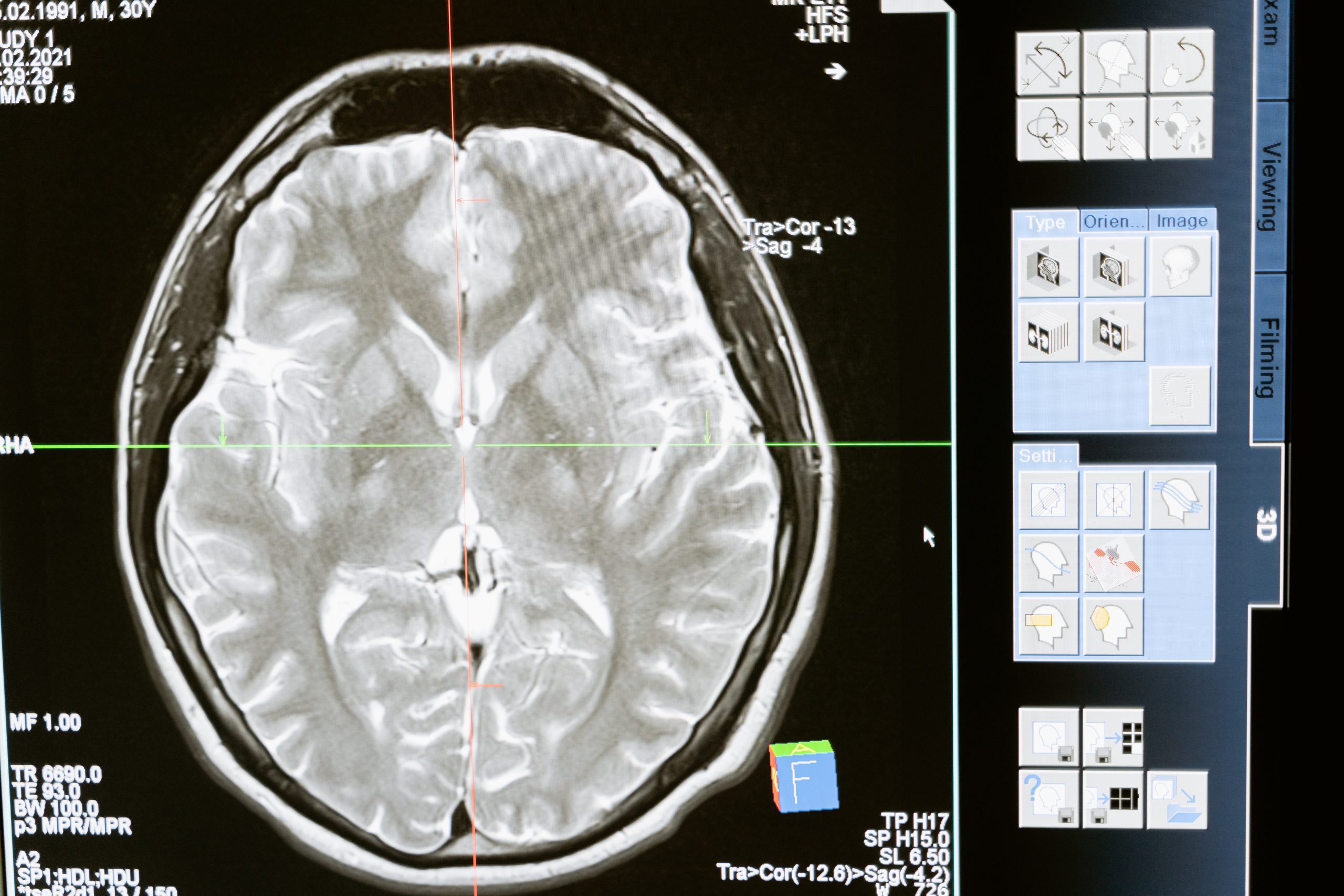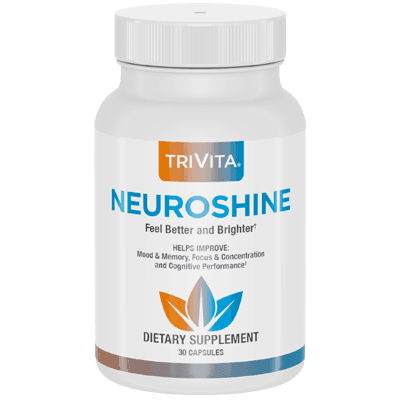Your cart is currently empty!
Category: Brain Health
-

Work Your Legs, Strengthen Your Brain
For centuries the relationship between physical activity and brain health has been acknowledged, but new studies are beginning to demonstrate the significance of movement on neurogenesis.
Based on work with mice, a new study published in the journal Frontiers in Neuroscience highlights the intricate brain-muscle connection. The study involved restraining the hind legs of mice for 28 days. The mice were still able to move around, feed and groom normally, and no additional stress was observed during the trial. Another group of mice was free to move unrestricted. A subsequent examination of a specific area in their brains – the sub-ventricular zone – found that neural stem cell activity was reduced by 70 percent compared to the control group. Also, drastic deterioration of specialized nerve cells was observed in the restrained group.
What does this mean for you?
The results of this study suggest that move movement, particularly weight-bearing exercise, sends signals to the brain that maintain existing cell health and triggers new cell growth.
“Neurological health is not a one-way street with the brain telling the muscles ‘lift,’ ‘walk,’ and so on,” said the lead study author Raffaella Adami of the Universita degli Studi di Milano in Italy. She goes on to say, “It is no accident that we are meant to be active: to walk, run, crouch to sit, and use our leg muscles to lift things.”Additional studies are crucial since research in animals doesn’t always produce the same results in human trials. But this study takes a major step in demonstrating the importance of movement in maintaining human health.
“Our study supports the notion that people who are unable to do load-bearing exercises – such as patients who are bed-ridden, or even astronauts on extended travel – not only lose muscle mass, but their body chemistry is altered at the cellular level, and even their nervous system is adversely impacted,” says Dr. Adami.
This research provides yet another reason to remain active, and movement of any kind is better than none. But if you face physical limitations, there are other ways to help increase your brain power through diet, supplementation and developing meaningful relationships.
Learn more about the nine things you can do today to improve your brain fitness.
-

Seven Secrets to Turbocharge Your brain
By Sandra Bond Chapman, Ph.D. The brain is the most powerful, most staggeringly complex electro-biochemical machine ever created. Above and behind our eyes are 100 billion neurons in a small calcium shell, laced with organic pumps, channels and switches. Until recently, this complicated organ was thought to be static and unchangeable. Far from it. The latest cognitive neuroscience research reveals key ways to improve brain health in people of all ages and stages. These discoveries are incredibly timely—now, more than ever. I recently had the honor of presenting some of my latest research at a TEDx event. TED is a nonprofit, nonpartisan organization devoted to spreading big ideas—from science to business to global issues—that deepen our understanding of the world around us.Look inward to the “final frontier”
In my talk, I encourage people to turn their focus inward. Truly, some of the most fascinating scientific discoveries today have to do with the world within us: our brains. With all due respect to “Star Trek,” outer space is not the only “final frontier.” Understanding and maximizing the potential of the human brain is also an important, and still largely uncharted, frontier of discovery. I’ve developed seven scientifically-validated secrets anyone can implement to improve brain performance. They’re based on my 30+ year career in brain science and work at the Center for BrainHealth, which I founded at the University of Texas/Dallas. You might be surprised at how much of the “7 Secrets” advice is counter to how people live and work. They are secrets because they challenge conventional wisdom and today’s societal pressures. In truth, the frenetic, distracted way we live in the 21st century is not conducive to good brain health or performance. While the descriptions here are tailored to working-age adults, “7-Secret Thinking” is also highly beneficial to others. Teens growing up in poverty, healthy older adults and those experiencing cognitive decline, and those who have sustained a traumatic brain injury are all benefiting by engaging in 7-Secret Thinking. Here’s one thing I know without a doubt: The majority of people have the chance to achieve better brain health. Put your brain health up front and center focus. Without brain health, we do not have health at all.Secret 1: Start single-tasking
For those who proudly call themselves multi-taskers, understand that your brain is not built to perform two tasks at the same time—instead, it must switch quickly from task to unrelated task. Multi-tasking tires the brain and activates stress hormones. Giving your full attention to the project at hand will increase accuracy, innovation and speed.Secret 2: Limit information
Thanks to our technology-driven and super-connected world, the sheer volume of information we are exposed to every day is nearly 200 times more than we were exposed to 20 years ago! Research shows this information overload comes at a price. High-performing minds are more efficient at knowing what to block out and what to keenly pay attention to. Limit what you take in to enhance your brain’s natural ability to block out what does not matter.Secret 3: Detox distractions
On average, individuals work for three minutes at a time before being interrupted. Complicating matters, technology is actually rewiring our brains to be addicted to interruption, as we anxiously wait for the next ping signaling a new email, text or social media post. By silencing your phone and computer and closing your office door, you can actually accelerate your brain’s ability to complete tasks.Secret 4: Think big
Designed to shift between details and the big picture, the brain is overwhelmed by too much focus on details and minutiae. Taking the time to think about a problem or idea from the 10,000-foot view will shift your perspective and strengthen brain systems to generate high-level ideas and transformative solutions. Our research has shown that doing so strengthens brain systems at multiple levels of health.Secret 5: Calibrate mental effort
Mental energy, like physical energy, can be depleted. Prioritize your day by focusing effort on the most important tasks while your brain is at peak operating power, usually at the beginning of the day.Secret 6: Innovate
Stepping outside your routine is important to brain health and performance. Our brains seek novelty and innovation, so challenge yourself to expand your knowledge and learn new skills.Secret 7: Motivate
While it is important to learn new skills, the brain is happiest when exploring areas you are passionate about. Focusing on what motivates and matters to you actually increases your rate of learning. This article is intended for educational purposes only.
References: http://journal.frontiersin.org/article/10.3389/fnsys.2014.00069/abstract https://www.youtube.com/watch?v=uUL5o-1Yawo -

Is a Gluten-Free Diet Putting You at Risk for a Vitamin B-12 Deficiency?
Prevent critical nutrient deficiencies when eating gluten-free
Researchers have long known that a strict vegetarian/vegan diet can lead to Vitamin B-12 deficiency, but vegetarians and vegans aren’t the only ones at risk. Individuals following a gluten-free diet may be susceptible to key nutrient deficiencies as well. In 2013, a study assessed the nutritional status of “early diagnosed” untreated adults with celiac disease (CD) in the Netherlands. The study found that nearly all CD patients (87%) had at least one value below the lower limit of folic acid, Vitamin A, B6, B12, and Vitamin D, zinc, hemoglobin and ferritin. Furthermore, 17% of the CD patients were malnourished.1 Newly diagnosed celiac patients aren’t the only group at risk though. To assess the vitamin status of celiac patients, one study looked at thirty adults in biopsy-proven remission that followed a gluten-free diet for 8-12 years. Researchers found that half of the patients showed signs of deficiency; specifically the mean daily intakes of Vitamin B-12 and folic acid were significantly lower in celiac patients than in the control group.2 People with celiac disease can experience nutritional deficiencies for many reasons including poor absorption and low intake. When there is damage in the small intestines, as with individuals who have celiac disease, the absorption of key nutrients can become compromised.Don’t Have Celiac Disease? You Could Still Be Vulnerable
Even if you haven’t been diagnosed with celiac disease or gluten sensitivity you can still be at risk for deficiencies if you regularly eat gluten-free foods. Unlike their gluten-containing counterparts, very few gluten-free products are enriched or fortified with essential vitamins and minerals. As a result, deficiencies are more prevalent among gluten-free dieters. Whether you have celiac disease or experience non-celiac gluten sensitivity, it is important to fill your plate with nutrient-dense foods such as gluten-free whole grains, vegetables, fruits, beans, meats, dairy, nuts and seeds to mitigate potential nutritional gaps. You may also consider supplementation to help improve your vitamin status and prevent deficiencies. Many supplements use fillers that may contain gluten. When looking for a Vitamin B-12 supplement, be sure to read the ingredient list and choose a product that will meet your nutritional needs and is gluten-free.
References: 1. https://www.ncbi.nlm.nih.gov/pubmed/24084055 2. https://www.ncbi.nlm.nih.gov/pubmed/12144584 -

Exercise Your Right to a Better Brain: Keep Moving to Stay Mentally Sharp
By Paul E. Bendheim, M.D. Modern research brings us many discoveries and breakthroughs, but the ancients knew something that holds true today: If you want to keep your mind sharp as you age, exercise. The positive relationship between physical exercise and overall health and longevity has been touted for more than two centuries. Modern scientific research methods have proven over and over again what the ancients knew. Here’s just one example: In a landmark 1986 study of almost 17,000 Harvard graduates, Dr. Ralph Paffenbarger and his colleagues found that the risk of death could be slashed through simple exercise. People who consistently burned about 300 calories a day from physical exercise (the amount that the body uses to walk briskly for 45–60 minutes), reduced their likelihood of death from all types of diseases by an extraordinary 28%.Inactivity is as harmful as smoking
The toll on your body from not exercising is about the same as the horrible toll that smoking takes. Most people today are too sensible to consider ravaging their health by smoking. Unfortunately, many of the same people fail to recognize the extraordinary benefits of exercise in preventing and treating medical problems. Regular physical exercise decreases your risk of premature death, heart and blood vessel disease, cancer, stroke, diabetes, obesity, high blood pressure, osteoporosis, bone fractures, anxiety and depression. Exercise also decreases your overall healthcare costs. Thousands of exercise-based research studies published over the past 30+ years add up to one inescapable conclusion: exercise = preventive medicine. What about exercise and the brain, though? Just as you can bulk up a specific muscle through exercise, you can enlarge and strengthen specific regions of your brain through exercise. Sound crazy? It isn’t; it’s science.
Walk toward a bigger, healthier brain
Moderate physical exercise, such as walking for at least 30 minutes three or more times a week, does all this:- Increases blood flow to the brain
- Enlarges your frontal lobes (where decision-making, planning and remembering reside)
- Adds new memory-recording neurons in your hippocampus (where memory-making occurs)

Special benefits for older women
Of interest to women, in particular, is another study published in the Journal of the American Medical Association. The conclusion: “… long-term regular physical activity, including walking, is associated with significantly better cognitive function and less cognitive decline in older women.” What about people who may already be headed for Alzheimer’s or another form of dementia? One study of over 1,700 people ages 65+ said that regular physical exercise “is associated with a delay in onset of dementia and Alzheimer’s disease.” Another found that in people already suffering memory loss, exercise five days a week for just 30 minutes daily could actually bring improvement.Strengthen memory, too
Could exercise help you remember and think better? Does exercise protect your brain from those times when you can’t remember where you left your car keys? Absolutely. From a study by Dr. Kirk Erickson and his colleagues at the University of Pittsburg and University of Illinois, Urbana-Champaign: “Our results clearly indicate that higher levels of aerobic fitness are associated with increased hippocampal volumes in older humans, which translates to better memory function.” Clearly, when it comes to brain health, physical fitness translates to mental fitness. As study after study demonstrates, you don’t need to run marathons or become a long-distance swimmer to benefit, grow and protect this most precious organ. Just place one foot in front of the other, and keep going. This article is intended for educational purposes only.
Reference:- Bendheim, PE, M.D. (2009). The Brain Training Revolution. A Proven Workout for Healthy Brain Aging. Naperville, IL: Sourcebooks, Inc.
-
The Startling Truth About Lithium
There are many misconceptions about Lithium. Many of us only know Lithium in its high-dose pharmaceutical form, and while it is an established treatment for bipolar disorder and other mood disorders, there is more to this abundant element that many of us aren’t familiar with.
Wary of Taking Lithium? Turns Out You Already Are
Lithium belongs to the alkali-metal group which also includes sodium and potassium. This naturally occurring element can be found in groundwater all over the world, including the United States. Lithium is present at low levels in the body and is commonly found in many foods such as vegetables, nuts and seeds, grains, fish and some meat and dairy may also contain this trace mineral.
Lithium Orotate is a specific form of lithium salt that offers the benefits of standard lithium without the potentially harmful side-effects due to its increased bioavailability. In minimal doses, Lithium appears to have medically important and positive impacts on mental health.

Effects of Low-Dose Lithium
In 1990, researchers began looking into the correlation between Lithium levels in drinking water and incidences of violent crimes. The study focused on 27 counties in Texas and found that the rates of suicide, homicide and sexual assault were significantly higher in counties that had little or no Lithium present in the drinking water than in counties whose Lithium levels ranged from 70-170 micrograms/L.1
Nearly 20 years later another study looked at suicide rates and Lithium levels in the 18 municipalities of Oita prefecture in Japan over a five year period. Their findings demonstrated that suicide rates decreased in areas where Lithium levels in drinking water were higher. They found that “even very low Lithium levels may reduce the risk of suicide and that within the levels there is a dose-response relationship.”2
More recently, researchers found that Alzheimer’s patients showed stabilization of cognitive impairment after receiving a microdose of Lithium given over a 15 month period. During the study, the treated group showed no further decline, while the control group showed lower scores on mini-mental state exams.3
These are just a few of the studies conducted that have shown low doses of Lithium positively benefit the brain and mood. The brain is a complex organ, and while scientists have made breakthrough discoveries, there is still more to learn. We do know that simple lifestyle changes can improve your brain health and function and research shows us that adding simple elements such as Lithium can have notable effects.
References:
-

Why You Need NeuroShine™
For every box of NeuroShine, you have a supplement with the combinative power of pantothenic acid, BacoMind and Lithium Orotate. These ingredients are specifically packaged to form a single, yet powerful and confirmed dietary supplement. Each of these ingredients works with each other in amazing and unique ways.BacoMind® (Bacopa Monnieri)
As it supports mood, helps with psychological stress and supports the functioning of the brain including the memory, Bacopa Monnieri, (BacoMind®) has been especially reported to aid adults in cognitive performance. For instance, positive results were recorded in a double-blind placebo; an age-related memory impairment test. BacoMind® was found to enhance the cognitive functions including focus & concentration, and verbal memory1.Pantothenic Acid (Vitamin B5)
Vitamin B5, also called pantothenic acid, has been discovered to play an essential role in the regulation and synthesis of several biochemical pathways. It is popularly known for its energy metabolism and its contribution to the proper functioning of the brain. This vitamin is also required as an important precursor of Coenzyme A category (an essential enzyme for energy and protein metabolism)2.
Lithium Orotate
As scientists continue to study the effects of Lithium Orotate studies have also shown that low doses of lithium consumed has positive benefits on the brain and mood. In fact, one particular study reported communities that had micro amounts of lithium in the drinking water experienced less suicide, homicide and violent crimes versus communities with no lithium in the drinking water3. Another study compared the low environmental dose range of lithium of 300 micrograms to placebo in a group of patients who had Mild Cognitive Impairment, a condition that can deteriorate to Alzheimer’s disease in some who have it. Those given the low dose lithium stabilized and did not lose cognitive function while the group on placebo had continued deterioration4. The research borne out of the environmental findings indicate numerous benefits from lithium at low microgram level of doses.
References: -

Feel Better and Brighter with NeuroShine™
Mood, memory, cognitive function and brain health continue to be some of the most-discussed topics as we grow older. This is due to the fact that research scientists are expanding knowledge in the field of brain health backed by the ever-increasing demand for more natural solutions such as scientifically validated dietary supplements. The brain serves as a go-to-get source for the various functions in our body system such as hearing, taste and smell, vision and the entire body balance. In addition, our brain plays an important role in controlling our behavior, mood and memories. Therefore, it is equally important for our brain to balance this function and research shows that a regular intake of certain dietary supplements in combination with exercise and diet such as the MIND Diet are some of the best ways to support the functioning of the brain and our mood; not only to make us feel brighter and better1 but also healthier. An outbreak of recent nutritional science news with a particular emphasis on mood and brain function reflects the increasing interest in non-drug, natural interventions to help support that our brain is healthy and performs better as we age. Given the present state of our society where senile dementia like Alzheimer’s disease, Depressive disorder and other related variations are of greater concerns, this heightened interest of the populace to find a more effective and natural solution to brain health is timely. Particularly with the soaring costs of health care, increasing rate of Alzheimer, heightened occurrence of Bipolar Disorder (also called Manic Depressive Disorder), and the aging population which places more priorities than ever on changing lifestyle and prevention. Over the years, however, pantothenic acid also called Vitamin B5, BacoMind, a standardized and branded form of Bacopa Monnieri and Lithium Orotate, have been shown to play a major role in brain health function and mood management1,2,3, and these are ingredients that can be integrated into our diets taken as dietary supplements.
A 3-in-1 Supplement for Brain Health and Mood Management
Dietary supplements, and the ingredients from which they are produced, with their bioavailability and level of absorption, provide us with amazing natural product choices that have been clinically confirmed for their effectiveness to improve cognitive functions, manage mood and improve brain functions. From BacoMind and Lithium Orotate to the varieties of natural cognitive supplements that can be derived from the pantothenic acid and other natural sources, individuals are now particularly interested in the effective methods of managing their mood and improving their cognitive function. Many people are increasingly wary of consuming the common prescription pharmaceutical drugs to enhance the proper functioning of the brain, as they are commonly produced from the combination of synthesized materials like amphetamine salts and which can lead to severe health issues like disruption of sleep patterns, anxiety, depression, psychosis, loss of appetite, and death. To meet the demands of the growing population for natural brain health solutions, TriVita is happy to announce the introduction of NeuroShine — a 3-in-1 dietary supplement that helps improve focus and concentration, supports mood, memory function and enhances cognitive performance1,2,3.
References: -

The Benefits of Fish Oil
How adding fish oil to your diet can help
All saturated and monosaturated fats can be made by the body and do not need to be supplied through the diet. However, the body is unable to make two types of polyunsaturated fatty acids (PUFA) that have been shown to have much beneficial health effects1:- Alpha-linolenic acid (Omega-3) found in flaxseed, flax oil, spinach, broccoli
- Linoleic acid (Omega-6) found in soy oil, sesame seeds, corn oil, and most nuts
Brain and Nerve Health Support2,3
- Approximately two-thirds of the human brain is made of fat
- Omega-3 fatty acids EPA and DHA are among the most important brain health nutrients
- DHA is the primary structural component of the brain
- Omega-3 and Omega-6 PUFAs constitute 30-35% of total brain fatty acids
- DHA levels decrease with age and are affected by the number of fatty acids in the diet
Vision Support4,5
- DHA is also critical for the development and function of the retina
Healthy Heart5,6
Omega-3 EPA/DHA:- May decrease triglyceride levels in plasma as well as the level of total and LDL (bad) cholesterol
- May normalize blood pressure by helping to increase and decrease levels of compounds that may result in blood vessel relaxation
Are Americans meeting nutritional guidelines for Omega-3 fatty acids? 7
- The 2010 Dietary Guidelines for Americans recommend consuming 250 mg/day of Omega-3 fatty acids (two 4 oz. servings of seafood/week)
Premium Fish Oil in an Easy-to-Swallow Soft Gel
If you’re considering adding Omega-3 to your diet, consider Omega3Prime supplements from TriVita, one of the cleanest, purest, and traceable fish oils on the market.
Sources:- http://web.stanford.edu/group/hopes/cgi-bin/hopes_test/fatty-acids/#saturated-vs-unsaturated-fat
- Luchtman DW, et al. Neuropharmacology 2013;64:550-565
- http://www.nutrasource.ca/uploads/userfiles/images/omega-3s%20and%20the%20brain%20-resized-600.png
- Innis SM. J Nutr 2007;137(4);855-859; Deckelbaum RJ, et al. J Nutr 2012;587S-591S; Wiktorowska A, et al. Adv Clin Exp Med 2015;24(6):931-941
- Wiktorowska A, et al. Adv Clin Exp Med 2015;24(6):931-941
- Bradberry JC, et al. P&T 2013;38(11):681-691
- Papanikolaou Y, et al. Nutr J 2014;13:31